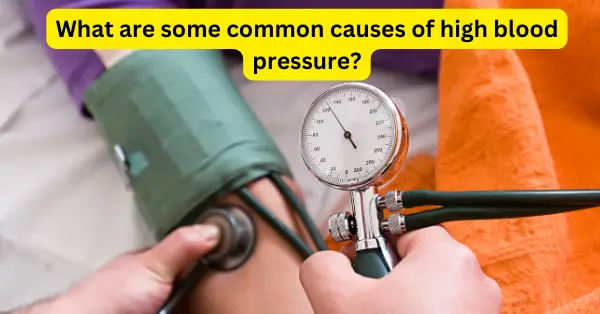Vaccines are an important part of staying healthy and preventing the spread of infectious diseases. Vaccinations protect individuals, families, and communities by reducing the risk of contracting illnesses caused by bacteria or viruses. Vaccines have been used for centuries to prevent serious illnesses, yet many people remain unaware of the common illnesses that can be prevented through vaccination. In this article, we will provide an overview of some of these common illnesses along with information about which vaccines are available to help protect against them. Immunizations and Vaccines: What’s the Difference?
Vaccination is a medical process that gives your body protection against diseases. Immunization is an umbrella term that refers to receiving one or more vaccinations.
Vaccines and Illness
Vaccines can prevent a wide range of illnesses, from the common cold to much more serious conditions. Vaccinations for childhood diseases such as measles, mumps and rubella (MMR) are widely recommended and implemented. Other commonly vaccinated-against illnesses include polio, diphtheria, tetanus and pertussis (whooping cough). For adults, vaccinations may also be recommended against certain types of influenza and pneumococcal infections. Vaccines are also available to protect against other illnesses such as hepatitis B and human papillomavirus (HPV). In addition to these illnesses, there are several other conditions that can be prevented through vaccination including rotavirus infection, chickenpox, hepatitis A virus infection and meningococcal disease. Regular booster shots may also be required in order to maintain protection from some of these illnesses. It is important for individuals to speak with their doctor if they have any questions regarding which vaccinations they should receive in order to best protect their health.
Benefits of Vaccines
Two of the most common illnesses that can be prevented through vaccination are measles and polio. Measles is a highly contagious respiratory infection caused by a virus and can cause serious health complications such as pneumonia, encephalitis, and death. The MMR (measles, mumps, rubella) vaccine is recommended for all children over 12 months old in order to prevent measles infections. Polio is an infectious disease caused by a virus which can lead to paralysis or even death in some cases. The oral polio vaccine is given to young children in multiple doses throughout infancy and early childhood to provide protection against the virus. Vaccines are also used to prevent other diseases such as chickenpox, meningococcal meningitis, hepatitis B, human papillomavirus (HPV), rotavirus, diphtheria and tetanus. By vaccinating our children we are not only protecting them from life-threatening illnesses but also reducing their risk of long-term complications associated with these illnesses like infertility or paralysis.
Common Vaccine-Preventable Diseases
Measles is an extremely contagious viral illness that can be prevented through vaccination. Symptoms include fever, cough, and a characteristic rash. It can cause serious complications such as pneumonia and encephalitis (swelling of the brain). The measles vaccine is typically given to children in combination with other vaccines as part of routine childhood immunization.
Mumps is another highly contagious virus that affects the salivary glands and can lead to inflammation and swelling. Complications may include deafness, meningitis, encephalitis, orchitis (inflammation of the testes), and pancreatitis (inflammation of the pancreas). Vaccination against mumps has been available since 1967.
Finally, rubella (also known as German measles) is a virus spread through coughing or sneezing that causes fever, rash, joint pain, and swollen lymph nodes in affected individuals. Rubella infection during pregnancy can lead to severe birth defects or even miscarriage for an unborn fetus. The rubella vaccine has been available since 1969; it is usually given in combination with measles and mumps vaccines as part of routine childhood immunization schedules.
Risks of Not Vaccinating
Not vaccinating puts people, and especially children, at increased risk of contracting serious illnesses. Vaccines protect against a range of diseases including measles, mumps, rubella, polio, whooping cough (pertussis), diphtheria and tetanus. Not vaccinating leaves individuals vulnerable to these illnesses and the potential for severe complications such as brain inflammation or even death. Moreover, if an unvaccinated person catches an infectious disease it can easily spread to other unvaccinated individuals in the community leading to widespread outbreaks. Outbreaks of contagious diseases can be particularly dangerous for young infants who are too young to be vaccinated or those with weakened immune systems due to medical conditions or treatments such as chemotherapy.
Who Should be Vaccinated?
Vaccination is a critical tool in protecting individuals and communities from preventable illnesses. Common illnesses that can be prevented through vaccination include whooping cough, measles, mumps, rubella, polio, varicella (chickenpox), hepatitis A and B, influenza (the flu), pneumococcal disease, and meningococcal disease. Vaccination helps to reduce the risk of infection by working with the body’s natural defenses to build immunity to specific diseases. Because of this, many people are advised to get vaccinated before coming into contact with an illness or after recovering from it.
Who should be vaccinated? Vaccines are recommended for people of all ages: infants as young as six weeks old; adolescents; adults; and seniors 65 years or older. The Centers for Disease Control and Prevention (CDC) recommends that all children aged 6 months or older receive the recommended vaccines in order to protect them against serious diseases such as whooping cough and mumps. Adults should also get certain vaccinations throughout their lives in order to stay up-to-date on immunization protection against these same illnesses. Additionally, those at higher risk—such as pregnant women—should consult their healthcare provider about receiving any additional vaccinations they may need for optimal health protection during pregnancy and beyond.
Vaccine Schedule and Requirements
The most common illnesses that can be prevented by vaccination include measles, mumps, rubella, tetanus, pertussis (whooping cough), polio, rotavirus, and varicella (chickenpox). Vaccinations are also recommended for preventing certain strains of influenza. Other vaccinations are available to protect against hepatitis A and B; human papillomavirus (HPV); Haemophilus influenzae type b (Hib); meningococcal disease; pneumococcal pneumonias; and diphtheria. The vaccine schedule and requirements will depend on the age of the child or adult being vaccinated as well as health conditions that may make some vaccines less effective or contraindicated. For example, infants typically begin their vaccine series at six weeks old with a dose of the polio vaccine followed by other doses every four to six weeks until completion. Adults should receive regular recommended immunizations for influenza and other illnesses such as shingles depending on their medical history and lifestyle risk factors.
Conclusion: Protecting Yourself Through Vaccination
Vaccines have been widely used to prevent a variety of illnesses, including measles, mumps, rubella, diphtheria, tetanus and whooping cough. Vaccines work by introducing a weakened form of the virus into the body so that it can build up an immunity against it. Vaccination is also used to protect against viral hepatitis B and bacterial meningitis. Preventative vaccines are now available for certain types of cancers such as HPV-related cervical cancer or liver cancer related to hepatitis B infection. By getting vaccinated against these illnesses, people can reduce their risk of developing them and potentially save lives in the process. Furthermore, many countries have comprehensive childhood vaccine programs that ensure all children receive protection from common diseases in early life when they are at most risk for serious complications from these illnesses. But what about for adults? Are vaccines still relevant and necessary in adulthood? The short answer is yes. For example, although most people have already been infected with hepatitis B virus as children, some people remain uninfected or become re-infected in adulthood. These people are at risk of developing serious liver disease and may die from cirrhosis, liver cancer, or liver failure. In addition, certain cancers (e.g., cervical, ovarian) can be prevented through the use of vaccines.


